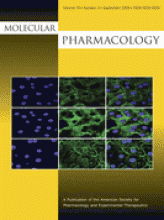Abstract
In this report, we reveal that etoposide inhibits the proliferation of SK-N-AS neuroblastoma cancer cells and promotes protein kinase Cδ (PKCδ)- and caspase-dependent apoptosis. Etoposide induces the caspase-3-dependent cleavage of PKCδ to its active p40 fragment, and active PKCδ triggers the processing of caspase-3 by a positive-feedback mechanism. Treatment of cells with the caspase-3-specific inhibitor N-benzyloxycarbonyl-Asp-Glu-Val-Asp-fluoromethyl ketone or caspase-3-specific small interacting RNA (siRNA) prevented the etoposide-induced activation of caspase-8 and inhibited apoptosis. The silencing of the caspase-2 or caspase-8 genes using siRNAs did not affect the etoposide-induced processing of caspase-3, indicating that these caspases lie downstream of caspase-3 in this signaling pathway. Furthermore, the etoposide-induced processing of caspase-2 required the expression of caspase-8, and the etoposide-mediated processing of caspase-8 required the expression of caspase-2, indicating that these two caspases activate each other after etoposide treatment. We also observed that etoposide-mediated apoptosis was decreased by treating the cells with the caspase-6-specific inhibitor benzyloxycarbonyl-Val-Glu(OMe)-Ile-Asp-(OMe)-fluoromethyl ketone and that caspase-6 was activated by a caspase-8-dependent mechanism. Finally, we show that rottlerin blocks etoposide-induced apoptosis by inhibiting the PKCδ-mediated activation of caspase-3 and by degrading caspase-2, which prevents caspase-8 activation. Our results add important insights into how etoposide mediates apoptotic signaling and how targeting these pathways may lead to the development of novel therapeutics for the treatment of neuroblastomas.
Footnotes
- Received January 21, 2009.
- Accepted June 23, 2009.
This work was supported the National Institutes of Health National Cancer Institute [Grant R01-CA101743]; and the Indiana University Simon Cancer Center.
ABBREVIATIONS: FADD, Fas-associated death domain; PKCδ: protein kinase Cδ; TRAIL, tumor necrosis factor-related apoptosis-inducing ligand; PIDD, p53-induced protein with a death domain; siRNA, small interacting RNA; Gö6976, 12-(2-cyanoethyl)-6,7,12,13-tetrahydro-13-methyl-5-oxo-5H-indolo(2,3-a)pyrrolo(3,4-c)-carbazole; z-DEVD-fmk, N-benzyloxycarbonyl-Asp-Glu-Val-Asp-fluoromethyl ketone; z-LEHD-fmk, N-benzyloxycarbonyl-Leu-Glu-His-Asp-fluoromethyl ketone; z-VEID-fmk, benzyloxycarbonyl-Val-Glu(OMe)-Ile-Asp(OMe)-fluoromethyl ketone.
↵1 Current affiliation: Department of Pharmacy, Wishard Health Services, Indianapolis, Indiana.
- The American Society for Pharmacology and Experimental Therapeutics
MolPharm articles become freely available 12 months after publication, and remain freely available for 5 years.Non-open access articles that fall outside this five year window are available only to institutional subscribers and current ASPET members, or through the article purchase feature at the bottom of the page.
|






